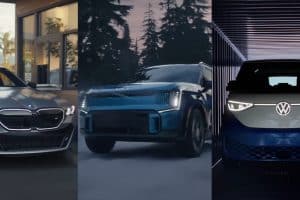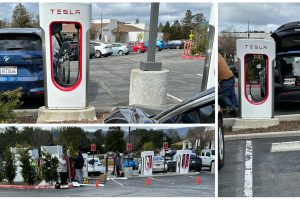Tesla battery partner Panasonic has sold its entire stake in American electric car maker Tesla for about 400 billion yen ($3.6 billion). As per a filing submitted on Friday, Panasonic effectively offloaded all its TSLA stock by the end of March 2021.
As of March last year, the Japanese conglomerate held about $730 million worth of TSLA shares. Over the 12 months that followed, Tesla stock experienced a remarkable five-fold growth, allowing Panasonic’s investment in the company to see some impressive returns. Panasonic bought roughly 1.4 million TSLA shares at $21.15 per share in 2010.
Panasonic spokesperson Yayoi Watanabe highlighted that the Japanese firm’s decision to offload its TSLA stock does not impact its relationship with Tesla in any way, as noted in a Bloomberg report. Instead, Watanabe noted that proceeds from the sale of TSLA stock would be used for future growth investments. This includes Panasonic’s acquisition of artificial intelligence software developer Blue Yonder, a deal estimated to be worth about $7 billion.
Blue Yonder’s technologies would likely be used by Panasonic to streamline its operations across the board. By using its own sensor technologies and Blue Yonder’s software, Panasonic would be able to analyze its site operations for inefficiencies, such as idle times of its workers.
The Panasonic spokesperson’s statement on Tesla seems to be on point, considering the recent statements from new President and Chief Executive Officer Yuki Kusumi. In a recent interview with Bloomberg, Kusumi noted that if Panasonic’s prototype 4680 cell line proves successful, and if it could manufacture the new batteries efficiently, it would be making a “large investment” in the technology. It could also supply them to Tesla and other automakers.
Kusumi also highlighted that Panasonic would be focusing a lot of its efforts on raising its battery production output while keeping its facility costs low. This should allow the Japanese tech conglomerate to protect its longtime partnership with Tesla while keeping rivals like LG Energy Solutions from South Korea and CATL from China at bay.
“It doesn’t matter how much you want to grow sales or increase profit if you don’t have the capacity to do so. Within our new structure, we’re going to polish this ability, and if you stay tuned, we’ll invest again in building supply capacity,” the new CEO said, noting that the electric vehicle battery business would be key to Panasonic’s growth in the near future.





